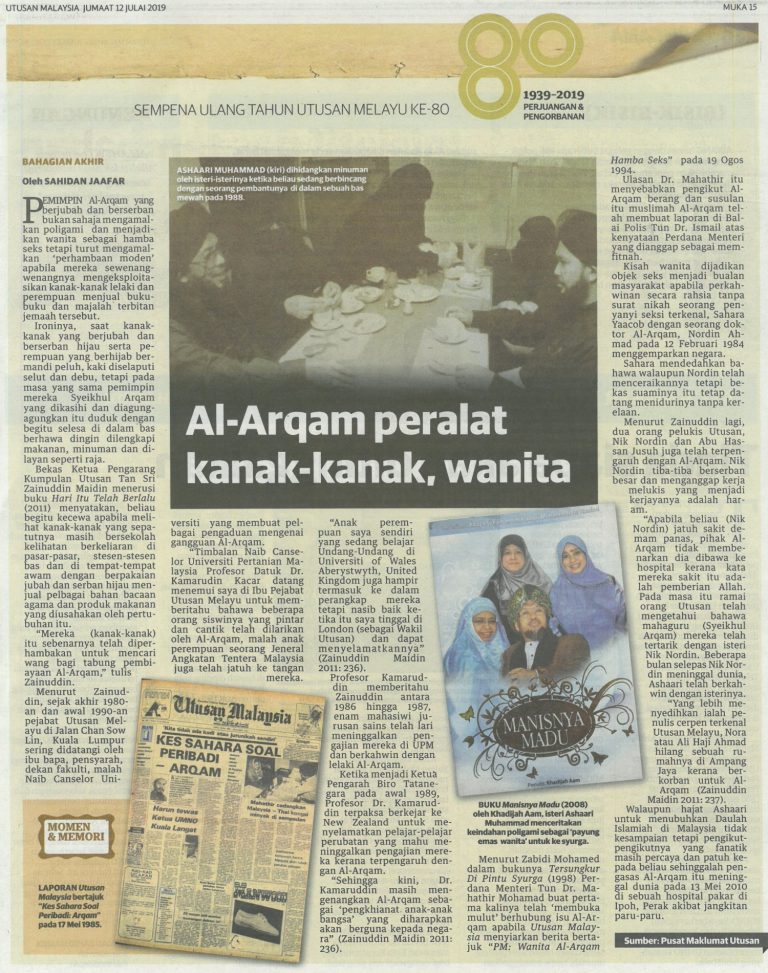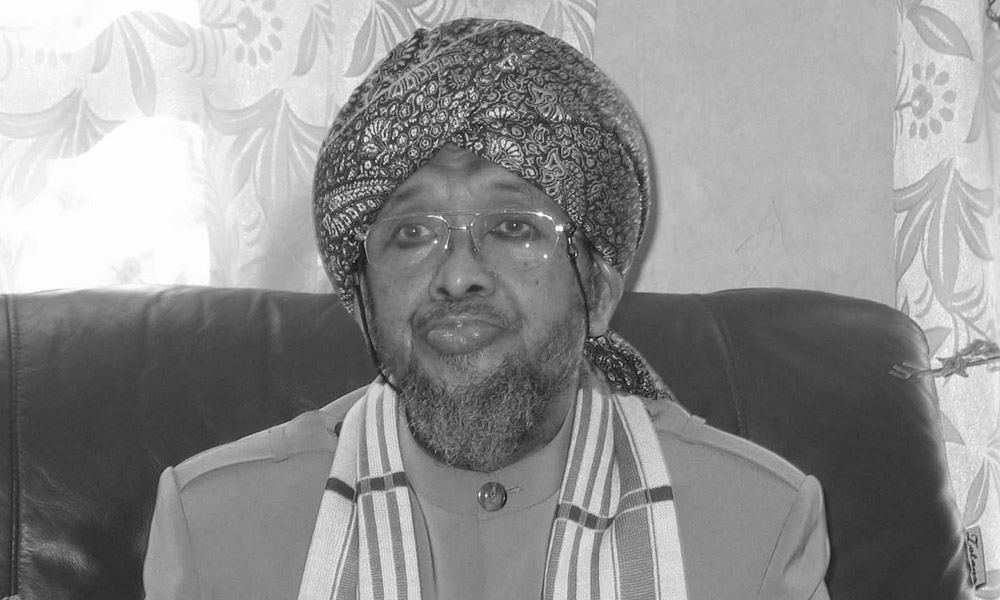What Is Al-Arqam & What Does It Have To Do With The Alleged Child Abuse In Welfare Homes?
Despite the official ban in the '90s, many of Al-Arqam's followers continued to operate businesses and maintain the group's core philosophy in more subtle forms.
Recent allegations of widespread child abuse at charity homes run by Global Ikhwan Services & Business (GISB) Holdings have caused the company's past to surface, including links to the infamous Al-Arqam sect
What is Al-Arqam, why is it important, and what is GISB's relationship to the movement? Let's get into it.
Al-Arqam is a known banned sect that has long been associated with controversy, secrecy, and scandal
It is one of the earliest sects to be declared heretical in Selangor, following the fatwa against the Haji Kahar movement, as reported by Sinar Daily.
Although the group was officially banned nearly three decades ago, its influence has endured through various ventures, particularly its association with the controversial business conglomerate GISB Holdings. Ongoing questions surround the lasting impact of Al-Arqam's leadership, their financial activities, and the complex relationship between religion and business that continues to shape their legacy.
Founded in 1968 by Ashaari Muhammad, Al-Arqam began as a fringe Islamic group that attracted followers through its charismatic leadership and promise of a return to a purer form of Islam
Initially, the group espoused traditional Islamic teachings, focusing on community living, self-sufficiency, and religious discipline. However, as Al-Arqam grew, it began to diverge from mainstream Islamic beliefs, leading to increasing scrutiny from both religious authorities and the government.
At the heart of the controversy were the group's deviant theological teachings, which many regarded as heretical. One of the core beliefs that set Al-Arqam apart was Ashaari's claim that he could communicate directly with Prophet Muhammad (PBUH) and other spiritual figures.
Ashaari presented himself as a figure with supernatural powers, capable of guiding his followers not just through religious instruction but also through prophetic visions and mystical experiences.
His most controversial teaching revolved around the idea that Ashaari was the Mahdi, the prophesied redeemer of Islam, who would lead Muslims into a golden era of peace and justice.
This claim, alongside his assertion of receiving divine guidance, placed Al-Arqam in conflict with true Islamic teachings, which reject any claims of prophecy after the time of Prophet Muhammad (PBUH).
The belief in Ashaari's exceptional spiritual status blurred the lines between religious leadership and self-proclaimed divinity, alarming both Islamic scholars and the Malaysian government.
Al-Arqam functioned not only as a religious movement but also as a socio-economic collective
Followers lived in isolated communities known as zawiyyahs, where they adhered to strict Islamic guidelines in every aspect of life. The movement promoted communal living and economic self-reliance, operating farms, small businesses, and even educational institutions. Al-Arqam created its own ecosystem, separate from the mainstream economy, fostering a sense of isolation and loyalty among its members.
Ashaari exercised total control over these communities, dictating everything from marriages to property ownership. The group's communal financial system was built on the principle that wealth and resources were to be pooled for the benefit of the community, but this also meant that followers were often financially dependent on the movement. Allegations of exploitation began to surface, with former members reporting that they had been pressured to surrender their personal assets to the group.
By the 1990s, Al-Arqam had grown into a vast network with a presence not only in Malaysia but also in Indonesia, Thailand, and other Southeast Asian countries, drawing thousands of followers.
The Malaysian government, led by then-prime minister Tun Dr Mahathir Mohamad, began to take notice of Al-Arqam's growing influence and unorthodox practices
Religious authorities, particularly the Department of Islamic Development Malaysia (JAKIM), declared that Al-Arqam's teachings were heretical and posed a threat to the religious unity of the country. In 1994, the government officially banned the movement, citing concerns over the group's deviant theology and its potential to destabilise the country's religious landscape.
Ashaari was arrested under the Internal Security Act (ISA), a law used to detain individuals without trial if they are deemed a threat to national security. Al-Arqam's leadership was disbanded, and its activities were declared illegal. The government also took action to dismantle the group's infrastructure, including its schools and businesses, in an effort to suppress its influence.
He died on 13 May 2010 at the Ipoh Specialist Centre as a result of lung disease.
Despite the official ban, many of Al-Arqam's followers continued to operate businesses and maintain the group's core philosophy in more subtle forms
One of the most prominent offshoots was GISB Holdings, a large conglomerate that was established in 2010. Its industries range from hospitality and agriculture to food production and travel services.
Many key figures within GISB Holdings are originally from Al-Arqam and hold leadership roles. This includes Ashaari's widow, Hatijah Aam, who has publicly claimed that her late husband continues to guide her from the afterlife. This notion of ongoing spiritual communication, similar to Ashaari's original claims, reignited concerns about the group's influence.
According to FMT, GISB previously said it had discarded its former image as the business wing of Al-Arqam and was currently positioned as a multinational company.
The company has agreed to cooperate with JAKIM over claims that it is involved with deviant teachings of the banned Al-Arqam sect.



